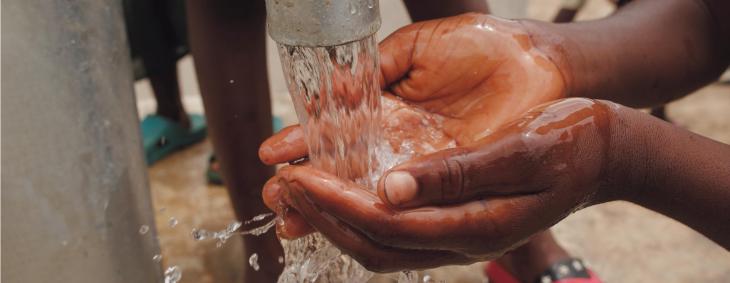The pandemic has shed light on the fragility and inequality of our most foundational systems, while highlighting the innovation and resilience of locally-led, community-based organizations. To improve upon and ultimately change our failing systems for the better we must leverage this moment to support them in profoundly different ways. The +1:WASH initiative is an ambitious, collective effort to catalyze this change.
+1:WASH is supported by a unique collaboration of WASH organizations, funders, practitioners, and social entrepreneurs working together to “ensure availability and sustainable management of water and sanitation for all” (SDG 6).
Overview
The +1 Global Funds are a collaborative platform for discovering, strengthening, connecting, and amplifying locally-led change in the Global South.
The funds use a network-driven model, in partnership with globally recognized organizations, to source high-impact change-makers working with frontline and last-mile communities. The +1 Funds serve to identify, invest in, and develop the capacity and collective impact of locally-led organizations in the Global South.
There are multiple +1 Global Funds—such as for WASH, Food Security, and Health—each dedicated to a specific issue and region and supported by multiple funders. Each +1 Fund taps existing networks to identify organizations through a cascading series of connections and nominations.
The name “+1” comes from the pay-it-forward ethos of the program. High-impact change-makers nominate up to 3 peers for funding. And those selected for funding are then invited to nominate their peers for support.
The Way it Works
The +1 Funds consist of sequential rounds, each 12 weeks long, in which we activate networks of social entrepreneurs, field experts, and innovators who nominate their peers for awards.
- In each round, nominators complete a simple form to nominate up to 3 organizations — nominees — who they think are doing impactful, essential work around Food Security.
- Nominees are reviewed and vetted rapidly by a council of global advisors according to specific criteria + eligibility.
- Those selected for awards receive grant funding, capacity development, and networking support.
- The nominator whose nominee is selected for an award receives an honorarium as well, we believe in paying fairly for work.
- Those who receive awards “pay it forward” by sharing nominations of their peers in future rounds.
- All funding is unrestricted, general operating support, and capacity development is tailored to individual organization’s needs.
In each round, we assess crisis hot spots, issue areas, impacted communities, and relevant data to determine with whom to partner and where to focus. As we bring on new network partners, the original network expands, our network strengthens, and we reach more organizations in more parts of the world most affected by the crisis.
Why We Partner
In developing a funding model powered by trust-based networks and peer-nominations, we are striving to nudge ourselves and others within the philanthropic sector to:
- Build more diverse “applicant pools” of locally-led organizations that are traditionally overlooked and underfunded.
- Provide organizations with unrestricted financial support, and keep the burden for accessing this support as low as possible.
- Provide non-financial support that organizations need, such as promotion to other funders, capacity strengthening opportunities, and connections to each other.
- Support networks of high-impact organizations sharing, learning, and supporting each other.
- Shift power to those closest to the problems and best positioned and most qualified to lead the change.
Impact
In the end, we hope to promote the best and most effective actors, as well as support the localization of funding decisions and decolonize philanthropy.
As of January 2023, we have 3 cohorts of +1:WASH. We have identified awardees, provided capacity training and individual support, and most importantly, have raised the visibility of these organizations to other funders, and governmental partners.
